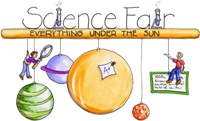

Are Colonies Superior
The Objective : The objective was to use a computer simulation to determine the efficiency of two types of evolution with regards to highly social and altruistic species (eusocial species) such as ants. The two types were individual direct selection, in which individuals reproduce, and the other was group selection, in which a single entity, who passes on their genes to an entire group (a queen), reproduces. Therefore, the question was whether individual selection or group selection working on eusocial species produced better traits, and how quickly.
Methods/Materials
To test this, the trait evolved was the attraction to trails of pheromone (chemical markers) to which there must be some ideal attraction to maximize efficiency.
To test this, first groups of colonies were evolved, and the level of attraction of the next generation was determined by that of the most successful previous colonies (based on amount of food gathered).
For individuals, it worked much the same way; there was no break between colonies, and data was gathered as a function of each individual ants lifespan.
These two experiments were each run 10 times, and total food gathered was recorded.
Results
The results were that the ants following group selection gathered significantly more food (on average per unit time) than those following individual selection.
The amount of food gathered in each generation did not improve over the course of individual selection, nor did it improve during generational selection.
The average chance of following a pheromone did not change over the course of individual direct selection, but, importantly, it did for group selection.
Not only that, but it moved towards a value which, on further analysis of the data, was found to produce more food on average in both individual direct selection and group selection.
Conclusions/Discussion
Based on this simulation, there is significant evidence for group selection being just as efficient (if not more so) than individual selection for eusocial species. This has important implications with regards to the evolution of eusocial species. It means that species which made the jump from mere high levels of organization to having the vast majority of their individuals being unable to reproduce were able to keep pace in a computational evolutionary sense with their cousins who did not.
This project is about the evolutionary efficiency of selection working on groups with regards to the origin of ants, as modeled using a system of artificial intelligence-based foraging behavior.
Science Fair Project done By Eli N. Weinstein
<<Back To Topics Page...................................................................................>>Next Topic
Related Projects : Buy Bonds ,Fractals ,Fun with Fibonacci ,Motion Detection Algorithm ,Natural Human Interface for Technology ,Sudoku Patterns ,Suite of Software Tools for Raman Spectroscopy ,To Go or Not to Go ,To Type or Not to Type , Zergling
Copyright © www.kidsprojects.info 2012 through 2014
Designed & Developed by Freddy